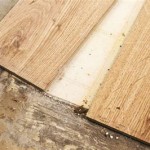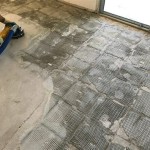Installing Engineered Flooring In Your Home: Essential Aspects
Engineered flooring is a popular choice for homeowners due to its durability, ease of maintenance, and wide variety of styles and finishes. If you're considering installing engineered flooring in your home, it's important to understand the essential aspects of the process to ensure a successful outcome.
1. Choosing the Right Flooring
The first step is to choose the right engineered flooring for your needs. Consider the following factors:
* Wear layer: The wear layer is the top layer of the flooring and determines its durability. Choose a wear layer thickness that is appropriate for the traffic and use of the room. * Core material: The core of the flooring provides stability and sound insulation. Options include plywood, HDF (high-density fiberboard), and WPC (wood-plastic composite). * Finish: The finish protects the flooring from wear and tear. Choose from options such as urethane, lacquer, or aluminum oxide.2. Preparing the Subfloor
Before installing the flooring, you need to prepare the subfloor. This involves:
* Leveling: The subfloor should be level within 1/8 inch over a 10-foot span. Use a level to check and make any necessary adjustments. * Smoothness: The subfloor should be smooth and free of any imperfections. Fill any holes or gaps with a patching compound. * Moisture barrier: Install a moisture barrier under the flooring to prevent moisture from damaging the flooring or subfloor.3. Installing the Flooring
There are two main methods for installing engineered flooring: glue-down and floating.
* Glue-down: The flooring is glued directly to the subfloor using an approved adhesive. This method provides the most stability and durability. * Floating: The flooring is installed over an underlayment and can be clicked or locked together. This method is easier to install but may not be as stable as glue-down.4. Trimming and Finishing
Once the flooring is installed, you need to trim it and finish it.
* Trimming: Use a saw to cut the flooring to fit around walls, door frames, and other obstacles. * Finishing: Install base molding or quarter round to cover the expansion gap around the perimeter of the room.5. Maintenance and Care
Engineered flooring is easy to maintain. Here are some tips:
* Sweep or vacuum regularly: This will remove dirt and debris that can damage the flooring. * Mop with a damp mop: Use a non-abrasive cleaner and wring the mop thoroughly to avoid excess moisture. * Avoid harsh chemicals: Do not use harsh chemicals or abrasive cleaners on the flooring. * Use furniture pads: Place furniture pads under furniture legs to prevent scratches.Conclusion
Installing engineered flooring in your home is a great way to improve its appearance and durability. By following these essential aspects, you can ensure a successful and long-lasting installation.

How To Install Lock Engineered Hardwood Flooring

Preparing Your Home For New Flooring Svb Wood Floors

How To Install Lock Engineered Hardwood Flooring

Hardwood Flooring Installation Step By Forbes Home

How To Install Engineered Hardwood Floors A Erfly House

Engineered Flooring Vs Laminate Everything You Need To Know Forbes Home

How To Install Laminate Flooring For Your Kelowna Home Impression Floors

How To Choose Install Hardwood Floors Almahdi

How To Install Lock Engineered Hardwood Flooring

How To Install Engineered Hardwood Floors A Erfly House
See Also






